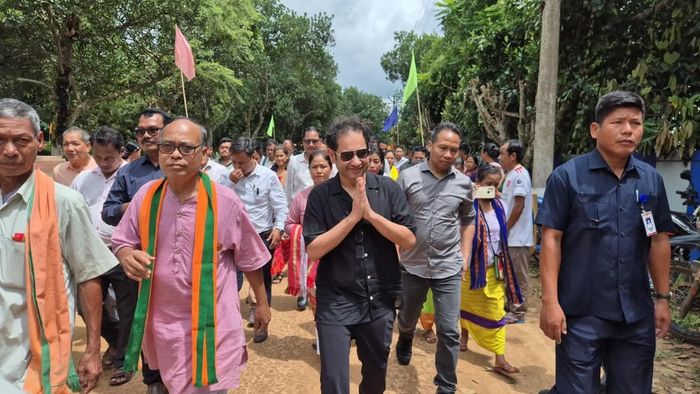“If we learn about Bengal's history, they should learn about Tripura's too”: Pradyot Debbarma
Pradyot Kishore Manikya Debbarma, founder of the Tipra Motha Party and descendant of Tripura's royal family, has demanded parity in historical education, arguing that Tripura's children deserve to learn about their own heritage with the same emphasis given to other states' histories.

- Sep 15, 2025,
- Updated Sep 15, 2025, 10:47 PM IST
Pradyot Kishore Manikya Debbarma, founder of the Tipra Motha Party and descendant of Tripura's royal family, has demanded parity in historical education, arguing that Tripura's children deserve to learn about their own heritage with the same emphasis given to other states' histories.
Speaking at a public gathering on September 15, Debbarma announced plans for the Tripura Tribal Areas Autonomous District Council (TTAADC) to establish cultural complex centres statewide, serving all indigenous communities, including Chakma, Mog, Hrangkhawal, and Ranglong peoples.
Debbarma highlighted a significant educational gap, pointing out that while Tripura students study the histories of Bengal, Bihar and other states, they receive minimal instruction about their own region's past. "Nobody tells them who constructed the Mata Tripura Sundari Temple or what Maharajas Amar Krishna, Birendra Kishore, and Bir Bikram Manikya contributed," Debbarma said. "Instead, we only learn about what political leaders have done."
His remarks underscore growing concerns about cultural preservation among indigenous communities in the northeastern state. Debbarma emphasised that protecting tribal identity requires deliberate educational initiatives that connect young people with their ancestral heritage.
"If we are expected to learn about Bengal's history, then they should also learn about Tripura's history," he stated. "If we need to listen to their stories, then they must listen to ours as well."
The royal scion framed his argument within India's democratic framework, asserting equal representation as a fundamental right. "India is for everyone. If anyone reacts, I will also react—because this is my democratic right," he declared.
Debbarma also urged tribal communities to move beyond political divisions. "We should not think only about politics but also about our own community," he said. "The time has come for Tiprasa people to be united."